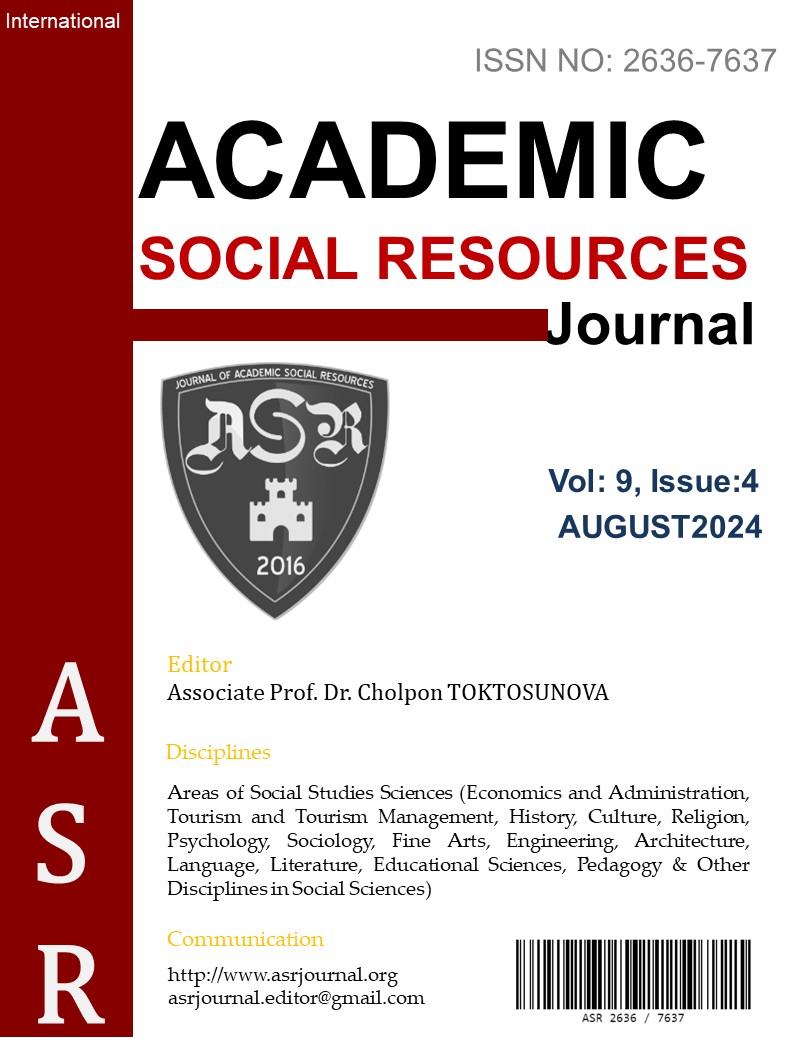Author :
Abstract
Araştırma ve geliştirme faaliyetleri (Ar-Ge), bir ülkenin üretim altyapısını ve mevcut faktörlerin verimliliğini olumlu yönde etkileyerek ekonomik büyümeye yol açar. Öte yandan, bir ülkede araştırma ve geliştirme faaliyetlerinin ortaya çıkışı, nasıl yaşanacağını ve üretileceğini belirleyen kurumsal yapıyla yakından ilişkilidir. Başka bir deyişle, kurumsal yapı, bireysel davranış kalıplarını etkiler ve girişimci, özgürlükçü, yenilikçi olma ve firmaların araştırma ve geliştirme faaliyetlerini destekleme süreçlerini etkiler. Kurumsal faktörler, bir ülkenin tüm ekonomik, sosyal ve siyasi yaşamını belirleyen alışkanlıklar, normlar, kurallar ve bürokratik süreçler olarak değerlendirilmelidir. Güçlü ve etkili bir kurumsal yapının varlığı, ekonomik süreçleri etkileyerek büyüme ve kalkınma sorunlarını azaltmada veya önlemede hayati bir rol oynar. Diğer yandan Ar-Ge harcamaları, bir ülkenin yenilik altyapısını ve dolayısıyla üretim potansiyelini ve üretim verimliliğini etkiler. Bu bağlamda, çalışma, kurumsal faktörlerde bir iyileşme olduğunda Ar-Ge harcamalarının nasıl etkileneceği veya Ar-Ge harcamalarındaki bir değişikliğin kurumsal faktörleri nasıl etkileyeceği sorusuna cevap aramaktadır. Bu çalışmada, seçilmiş D-7 ülkeleri (ABD, Almanya, Fransa, Birleşik Krallık, İtalya, Kanada ve Japonya) için 1996-2022 dönemi panel veri modeli kullanılmıştır. Çalışmanın sonucunda, D-7 ülkelerinde kurumsal kalite göstergeleri iyileştikçe Ar-Ge harcamalarının da arttığı sonucuna varılmıştır.
Keywords
Abstract
Research and development activities (R&D) positively affect a country's production infrastructure and the productivity of existing factors and thus lead to economic growth. On the other hand, the emergence of research and development activities in a country is closely related to the institutional structure that determines how to live and produce. In other words, the institutional structure influences individual behaviour patterns and affects the processes of being entrepreneurial, libertarian, innovative and supporting research and development activities of firms. Institutional factors should be considered as habits, norms, rules and bureaucratic processes that determine the whole economic, social and political life of a country. The existence of a strong and effective institutional structure plays a vital role in reducing or preventing growth and development problems by affecting economic processes. R&D expenditures, on the other hand, affect the innovation infrastructure of a country and thus the production potential and efficiency of production. In this context, the study seeks to answer the question of how R&D expenditures will be affected when there is an improvement in institutional factors or how a change in R&D expenditures will affect institutional factors. In this study, a panel data model is used for the period 1996-2022 for selected D-7 countries (USA, Germany, France, UK, Italy, Canada and Japan). As a result of the study, it is concluded that as institutional quality indicators improve in D-7 countries, R&D expenditures also increase.





